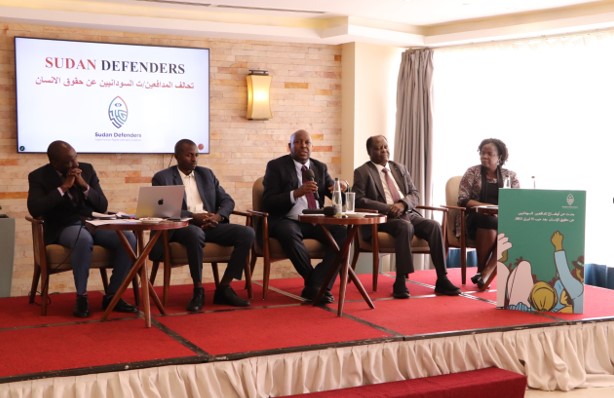January 2025 Newsletter

Executive Summary
Greetings from Sudan Defenders!
I am pleased to share with you the highlights from our recent activities and initiatives in this month’s newsletter. On January 20, 2025, we convened for the 2nd annual general assembly of SudanDefenders, an event made possible by the steadfast support of DefendDefenders since our coalition was formed in 2022. We reviewed and approved our outgoing committee’s performance and budget reports during the General Assembly. Our discussions centred on the pressing conditions faced by human rights defenders within and outside Sudan, including the structure of our coalition, proposed amendments to our bylaws, the expansion of our membership, and the election of a new board of directors comprised of 11 dedicated human rights defenders.
On 21 January 2025, we launched our report, “Research on the Situation of Sudanese Human Rights Defenders after the War of April 15, 2023.” This crucial report delves into the ongoing challenges confronting our defenders, offering insights and recommendations to key stakeholders to enhance their capacity to work effectively.
The newly elected Board of Directors is committed to implementing the recommendations from our general assembly, including the critical appointment of a coordinator and a secretariat to guide our work plan for 2025-2027. Our goals include managing new membership applications, broadening the coalition, securing essential resources, and fostering strong communication with defenders inside and outside Sudan.
Unfortunately, the humanitarian and human rights situation in Sudan remains dire in the aftermath of the April 15, 2023 war, with no immediate political resolution in sight despite various initiatives. Our coalition and partners are dedicated to continuing our advocacy efforts to halt the violence, hold accountable those who violate international human rights laws, and ensure the protection of defenders, allowing them to pursue their important work.
Our latest issue highlights Abdlbagi Hamad, whose story of resilience and determination shines through the darkness in a world of turmoil. His journey, which was marked by hardship and a yearning for peace, stands as a testament to the strength of the human spirit amidst conflict.
Thank you for your ongoing support and engagement. I invite you all to delve into our January newsletter here.
Shawqi Yaqoub
Chairperson, Board of Directors
